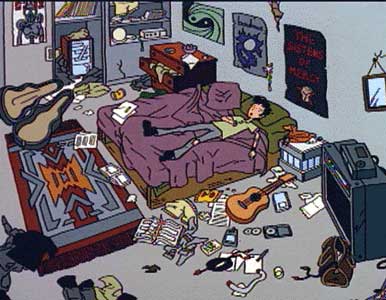
The Big Necessity (subtitled Adventures in the World of Human Waste, in the UK, and The Unmentionable World of Human Waste and Why It Matters, in the US) by Rose George, which has been called 'The most unforgettable book to pass through the publishing pipeline in years' by Mary Roach, is unquestionably one of the best books of recent times; very funny, very scary, and occasionally truly tragic.
If you are like most people, you are probably already disgusted; you have turned up your nose, your body and mind is on high alert, and you are secretly thinking that I have a scatological fetish. (I may or may not be a scat freak, but that is irrelevant.) In fact, Rose herself has, by now, had to spend many months answering the question of why she decided to write this book. In spite of the fact that defecation is as much a fact of life as breathing (everyone does it, after all, and an average human spends three years of their life going to the toilet), it is considered to be very lowly unlike most other body-related functions. Indeed, rules governing defecation exist in every culture at every period in history and may even be the foundation of civilization since potty training is nothing but an attempt to turn a child into an acceptable member of society. The result of this neglect is clear: 2.6 billion people in the world have no sanitation (four in ten people have no access to any latrine, toilet, bucket, or box) and poor sanitation causes one in ten of the world's illnesses with fecally contaminated water killing a child every 15 seconds.
In 2007, readers of the British medical Journal chose sanitation to be the biggest medical milestone of the last 200 years. The toilet is probably the single biggest variable in increasing human life span: proper disposal of human excreta can reduce diarrhea by nearly 40% and modern sanitation has added 20 years to the average human life. But even the reality of the rich toileted people can be a myth, and the affluent have a bigger effluent problem than they may care to admit. While most Westerners put the thought of human waste out of their minds once they flush it out of their sight, it makes sense to scratch under the surface of this complacency. Until about three years ago, Milan, Italy's cultural capital, discharged its raw sewage into the river Lambro; Brussels, the EU's administrative seat, only started building a sewage treatment plant in 2003; In the United States, 1.7 million people have no sanitation (and that does not just mean that they have no toilet in their house - even an outhouse that empties into a rickety drain counts as sanitation; it means that they have nothing).
And yet the subject remains unmentionable. Even though defecation, and the rules governing it, easily encompass the whole spectrum of human behavior, it takes a brave academic to address it and discussing it openly is probably the last true taboo. Sex and death may have both become conversational, but not shit; Steven Pinker, in his explanation of taboo words, explains how the acceptability of excreta-related words such as spit, snot, fart, piss, and shit are approximately in the same order as the acceptability of eliminating these substances from the body in public.
Sigmund Freud, who thought the study of excretion essential and its neglect a stupidity, wrote that humanity's wiser course would undoubtedly be to admit [shit's] existence and dignify it as much as possible. The Big Necessity fills a very big necessity by attempting to do just that.

1 comment:
Sounds fascinating, actually... it's not really something most people think about, and do most people even *know* how their city's sanitation system works?
Post a Comment